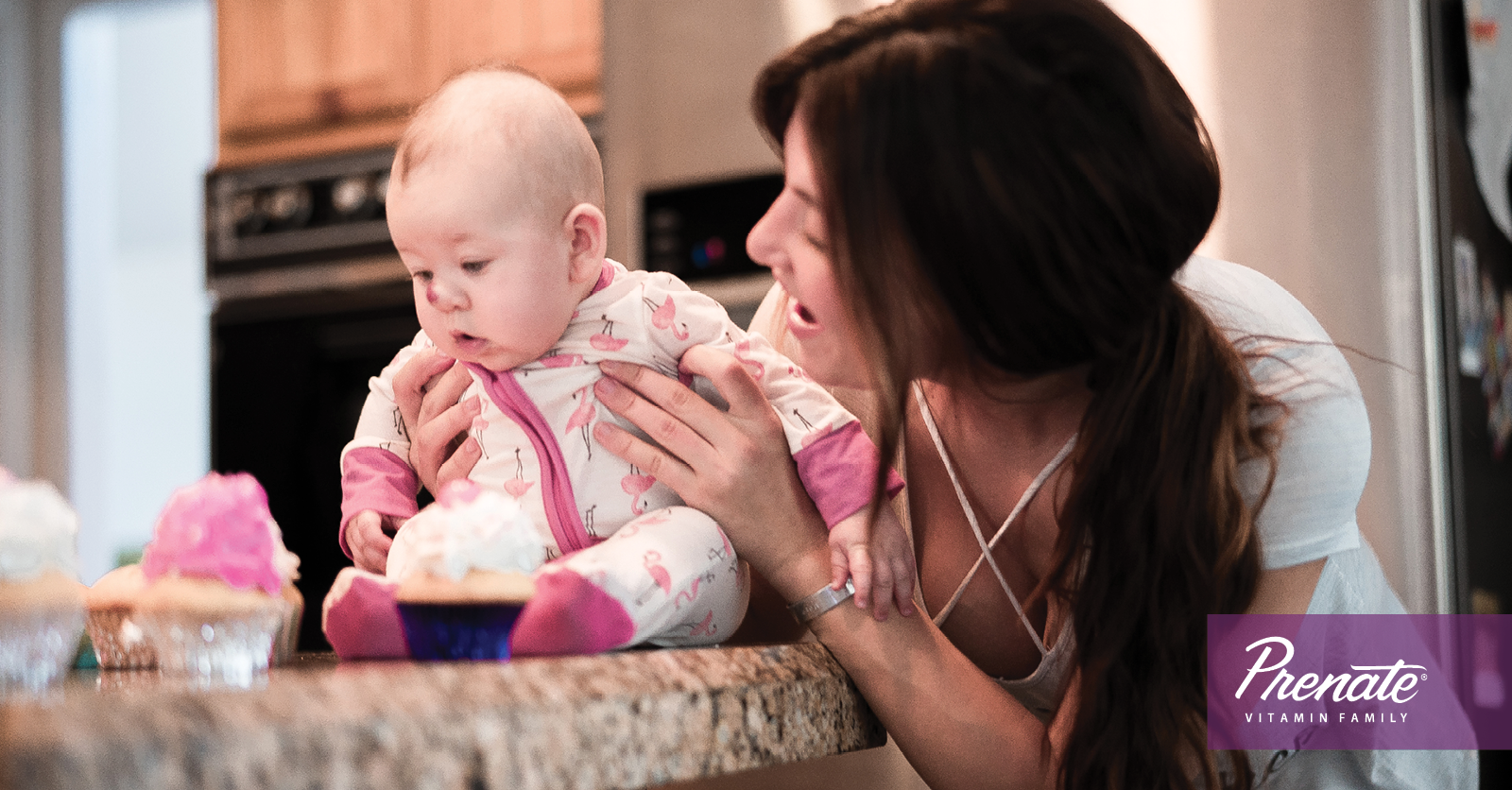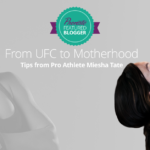My Breastfeeding Journey
November 29, 2019
This post was sponsored by Avion Pharmaceuticals and should not be construed to constitute medical advice. Miesha Tate’s personal story and opinions are her own. She is not a medical professional and is not qualified to give medical advice. Please talk with your doctor about your individual medical situation.
I was really lucky that I had the time to be really attentive to my daughter Amia postpartum. Having time at home does make breastfeeding easier. But it wasn’t always an easy road. Before giving birth, I set a goal to breastfeed for the first year. I know it was a lofty goal, but I had read so much about the benefits of breastfeeding that I wanted to make it happen for her and me.
Benefits of Breastfeeding
For those who are considering breastfeeding, I think it’s important to point out a few of the reasons why I wanted to go this route. For babies, breast milk is:
- Nutrient-Rich – Breast milk is packed with nutrients and antibodies.1
- Balanced – Breast milk has just the right amount of fat, sugar, water and protein for your baby.1
- Gentler – Breast milk is typically easier than formula for babies to digest.1
- Immunity Booster – The cells, hormones and antibodies in breastmilk may help protect babies from disease, including lower respiratory infections, dermatitis, asthma, obesity, diabetes and childhood leukemia.1
Breastfeeding Support
Despite my best intentions, breastfeeding didn’t come naturally to me. I really underestimated how difficult and painful breastfeeding can be. Amia seemed to know exactly what she was doing, once she latched. But, I really needed guidance on how to get her to latch successfully, so it wouldn’t be as painful. Unfortunately I went several weeks with her not latching correctly, and it was excruciating for me to breastfeed her.
The responsibility of caring for a new life and the logistics of breastfeeding were a bit overwhelming. I knew that in order to make this work, I needed help. I reached out to a lactation consultant for advice and counseling. She showed me exactly what needed to be tweaked with the latch. We also discussed ways to keep my milk supply up and discussed different pump options that would work for me. These counseling sessions made a world of difference early on, and really set me up for success to reach my year goal.
I cannot stress enough how important it is to reach out for breastfeeding support, even before giving birth. During the third trimester, an expecting mom should talk to her healthcare provider about her intention to breastfeed. Her healthcare provider can recommend resources to prepare for breastfeeding, as well as a list of lactation consultants. Plus, many hospitals have lactation specialists on-site who will meet with new mothers before and after delivery.
New moms should also ask for the contact information of the lactation consultant for follow-up questions or issues that may arise once their babies are home. For me the first four months, when I was feeding every two to three hours, were very challenging and extremely demanding. I can see why women feel like they want to give up. It is very difficult to stay on the regimen. When I went back to work it made it that much more challenging. So having additional support from a lactation consultant can make a difference. In those moments when I was seriously considering throwing in the towel, I just keep reminding myself of the benefits for Amia. That helped give me the mental fortitude to stick with it.
Nutritional Support for Breastfeeding
After giving birth I didn’t try to get my weight down too fast, primarily because I was breastfeeding. I’ve learned that it can cause a slow-down in the production of your milk supply. If you are calorie deficient then your body doesn’t have the reserve to keep up. My doctor advised me to keep my caloric intake up by 500 calories a day while breastfeeding. I love food, so I was really loving the free pass. Honestly, I was the most hungry while breastfeeding over any time during pregnancy.
But while breastfeeding, a mom’s nutrition is just as important as her baby’s. I knew that healthy eating habits would impact both Amia’s and my mood, energy and overall well-being. Personally I avoided sodas or coffee and other caffeinated foods because I would notice a change in Amia’s energy and mood. I made sure to incorporate foods and supplements that were rich in omega-3s, calcium and vitamin D.
- Calcium and Vitamin D – Because babies have high needs for vitamin D, their mothers often experience loss of bone mass while breastfeeding.2 Calcium and vitamin D work hand-in-hand to help keep a mother’s bones strong while her baby’s bones and teeth are developing.2
- Omega-3s – Up to 50 percent of omega-3 stores are lost in pregnancy, and six months are needed to restore them postpartum.3 DHA is an omega-3 fatty acid that can help reduce the risk of postpartum depression and improve infant sleep.4-7 For babies, DHA may improve cognitive and motor skills.3-10 Plus, DHA aids in immune development and reduces inflammatory responses.3,8-10
Understandably you might not always able to reach the recommended daily amounts of nutrients with diet alone. Prenatal vitamins are not only important before and during pregnancy, but they may also be beneficial after pregnancy and during breastfeeding. A prenatal vitamin taken postpartum can help fill nutritional gaps. Don’t let your own goals go by the wayside after your baby’s arrival. I believe that taking care of yourself is the first step to giving your baby the best start in life.
_______________________________________________________
Prenate® Vitamin Family teamed up with Miesha Tate to help bring awareness to the importance of healthy habits before, during and after pregnancy. Miesha, a women’s MMA and UFC champion, is working with Prenate® to offer insight and advice to women on maintaining a healthy lifestyle, being mentally strong, focusing on nutrition and setting achievable life goals during the transition to motherhood.
About Miesha Tate
Miesha Tate is an American mixed martial arts pundit and former mixed martial artist who competed in the Ultimate Fighting Championship (UFC) and is a former UFC Women’s Bantamweight Champion. Miesha is an accomplished athlete but is also laser-focused on the empowerment of women to reach personal goals and develop life skills for healthy living. She is very involved in staying fit through exercise and proper nutrition, especially before, during and after her pregnancy. Miesha welcomed her first child, a baby girl, in July 2018.
About Prenate Vitamin Family
Prenate® Vitamin Family offers a line of prescription prenatal vitamins that offer nutritional support customized for the particular needs of every stage of pregnancy. Prenate® Vitamin Family incorporates USP pharmaceutical-grade ingredients that provide patients the quality and purity important for prenatal nutritional support. With small prenatal vitamins ideal for preconception, to robust prenatal vitamins with advanced nutritional content, Prenate® offers something for everyone. Ask your doctor if a Prenate® prescription prenatal vitamin is right for you.
You Are About To Leave This Website
By clicking continue, this link will take you to a website to which Alora Pharmaceuticals Policies & Terms of Use do not apply. Alora and its subsidiaries do not control the content or accuracy of third-party websites and assume no responsibility for their use.















